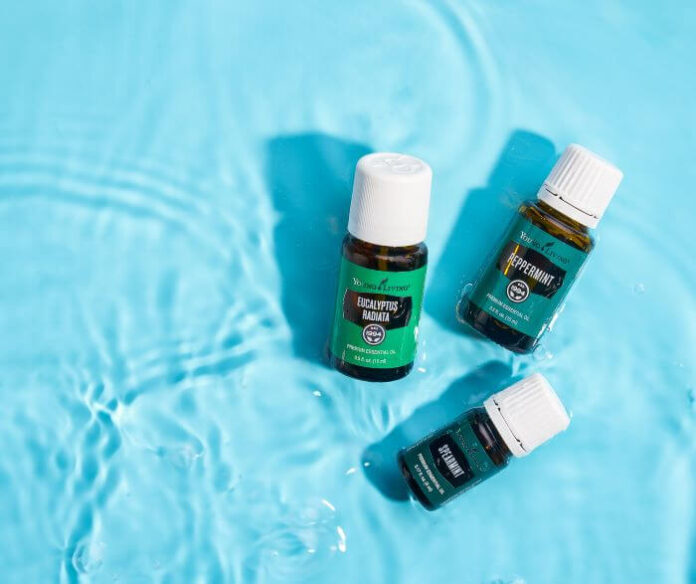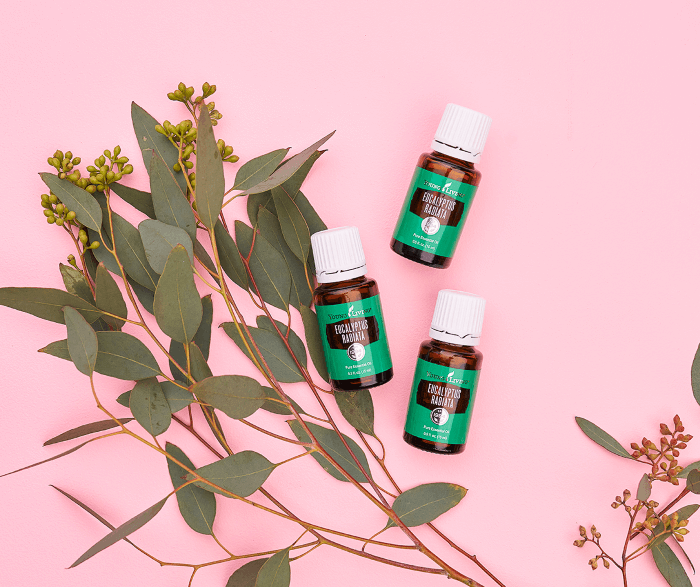If you are a fan of both the essential oil market and multi-level marketing, then you will agree that Young Living is indeed a significant player in those arenas. The company has been able to carve a name for itself through its unique business model and popular essential oils.
But recently, a question has been circulating about this brand: “Is Young Living going out of business?” It’s a query that’s gained traction amid various controversies and discussions surrounding the company.
To put it simply, as things stand, Young Living is not going out of business. It’s still operational and showing no immediate signs of closure.
Why that may provide quick relief to your mind about this favorite essential oil brand, you need to know that many things have been happening late behind the scenes.
So, in this article, we will be diving deeper than just answering, ‘Is Young Living going out of business?’ but we will also answer some more questions you might have concerning the brand. Just keep reading!
What about Young Living Essential Oils?
Young Living has no doubt become a household name in the essential oils market. Established in 1993, its journey over the past two decades has been remarkable, with a reported annual sales figure exceeding $1.5 billion by 2017.
Its diverse product line, primarily essential oils, has garnered widespread attention and popularity. And that has given it a good root in the essential oil market. Young Living produces a wide variety of essential oils, with each focusing on different uses and applications.
However, recent developments have cast a shadow over its reputation. These include a warning from the FDA and the closure of operations in Russia, sparking speculations about its potential closure. So, if you are asking, ‘Is Young Living going out of business?’ then you should know you are not alone.
Is Young Living Going Out of Business?
The short answer is no. Despite facing challenges and controversies, particularly regarding product claims and the lack of scientific substantiation, Young Living continues its operations.
This is not the first time rumors of closures have sprung up about such a prominent brand. But with Young Living, the rumors seem to have a root that makes it doubtful if the brand will indeed be able to survive.
Recent events, such as the warning from the FDA and the demise of its founder, Gary Young, have led to speculations about its future. But, the company has made no official statement indicating a shutdown.
Young Living’s MLM Business Model
Young Living’s business model is an intriguing aspect of its operations, based on multi-level marketing (MLM). This model, often associated with direct sales companies, involves a network of non-salaried individuals who earn through personal sales and commissions from sales made by people they recruit.
The structure of this model is pyramid-like, where earnings and rewards increase as one climbs higher in the recruitment hierarchy. This system has been both praised and criticized, as it offers opportunities for entrepreneurship but also raises questions about its sustainability and fairness.
The success of individuals in MLM heavily depends on their ability to recruit new members and sell products, a challenge that not everyone can surmount effectively.
This MLM structure has been a crucial factor in Young Living’s growth and market penetration. It has enabled the company to build a vast network of distributors who not only sell products but also bring in new distributors.
However, this approach has also been a source of controversy. Critics argue that the model benefits those at the top of the pyramid disproportionately, while the majority at the lower levels earn minimal profits. Such a distribution of earnings can lead to dissatisfaction and turnover among members.
Even though Young Living is not the only popular brand adopting this type of business model, people believe the company may be going about it in an unethical way, and that has generated many critics and legal issues for the brand.
What is Happening with Young Living?
As we said earlier, there is a reason people are asking, ‘Is Young Living going out of business?’ In recent years, Young Living has been embroiled in a significant controversy that has raised questions about its practices and ethics.
The most notable of these was a high-profile class-action lawsuit filed in 2020 under the Racketeer Influenced and Corrupt Organizations Act (RICO). This legal challenge, initiated by former member Julie O’Shaughnessy, was filed in a Texas federal court and brought to light some serious allegations.
The lawsuit centered around claims made within Young Living’s MLM network regarding the effectiveness of its products against COVID-19. These claims, which lacked scientific backing, were particularly alarming as they potentially exploited public health fears during a global pandemic.
Young Living’s attempt to settle the matter through arbitration was denied, showing the gravity of these allegations and the legal implications they posed for the company.
Apart from this lawsuit, Young Living has also faced other legal issues, notably concerning the ethical sourcing of its ingredients. In 2017, the company faced penalties for the importation of illegally harvested ingredients. This caused the company to lose about $760,000 in fines, restitution, and community service payments.
These legal troubles have not only affected Young Living’s financial standing but have also damaged its reputation, casting a shadow over the sustainability and ethical grounding of its business model.
What Happened to the Founder of Young Living?
This has also been a major stumbling block for Young Living. In 2018, Gary Young, the founder of Young Living, passed away due to complications from strokes.
His death marked a significant turning point for the company. This was a pioneering leader who has been at the helm of the company for about 35 years and has also been the pivot of the success the brand is enjoying today in the essential oil market.
Does this have anything to do with the speculations circulating about the potential closure of the company? You can bet it is. However, despite the passing on of Garry Young, his legacy continues under the leadership of his wife, Mary Young.
The Brand Recently Got a Warning from FDA
In June 2020, Young Living faced a significant regulatory challenge when the U.S. Food and Drug Administration (FDA) issued a warning letter to the company.
This action stemmed from various claims made by Young Living and its distributors about the medicinal properties of some of their products, including essential oils and CBD-infused items. These claims essentially positioned these products as unapproved drugs under the Federal Food, Drug, and Cosmetic Act, requiring rigorous testing and FDA approval, procedures Young Living had not complied with.
The FDA’s warning particularly targeted the company’s promotional materials and social media posts, which frequently included unsubstantiated health claims. This not only represented a major regulatory hurdle for Young Living but also one that cast a shadow on the brand’s reputation and the acceptance of some of its essential oils.
Young Living Also Suspends Its Operations in Russia
The geopolitical landscape in recent years has had a direct impact on many multinational companies, including Young Living, which made a strategic decision to suspend its operations in Russia and the Eurasian Economic Union (EAEU) countries.
This suspension, which encompassed halting capital investments, marketing activities, and events, was a response to the escalating geopolitical tensions in the region. This move was not just a business decision but also a reflection of Young Living’s awareness and sensitivity to global events, aligning with the actions taken by many other international companies.
Additionally, in this period of uncertainty, Young Living demonstrated support for its Ukrainian staff and brand partners, showcasing a commitment to its global community and ethical considerations beyond mere business interests.
So, if this is one of the reasons you are wondering if Young Living is going out of business, the answer is no. The suspension of operations in Russia is just a reflection of the geopolitical unrest in the region.
Final Note
So, is Young Living going out of business? Currently, the answer remains no. Despite the hurdles, including legal challenges, controversial business practices, and the loss of its founder, Young Living continues its operations.
Even though the company’s future hinges on navigating these challenges effectively, as of now, Young Living remains a player in the essential oils market. Is it going out of business in the future? We may need to keep our fingers crossed for that!
FAQs
Does Young Living still make essential oils?
Absolutely, Young Living is still actively engaged in the production of essential oils. The company has established itself as a major figure in the essential oil industry and continues to offer a diverse array of essential oil products.
Even though the company has encountered many controversies recently and is facing challenges in its operations, it has managed to maintain its role as a significant provider in the essential oils market.
Is Young Living facing financial challenges?
The specific financial status of Young Living is not publicly detailed, as it operates as a private entity and thus does not disclose its financial statements like publicly-traded companies.
While there’s no clear, public information indicating significant financial distress, it’s common for large companies to operate with some degree of debt as part of their regular business activities.
Considering the legal and regulatory challenges Young Living has encountered, there may be financial impacts, but the exact nature and extent of these are not publicly known.
Who is Young Living owned by?
Young Living was founded by Gary Young and Mary Young. After Gary Young’s passing in 2018, Mary Young continues to lead the company. They have been instrumental in establishing Young Living as a key player in the essential oils market, with the company being recognized as a major entity in this industry.
Why are essential oils not FDA-approved?
The FDA (Food and Drug Administration) in the United States classifies essential oils as cosmetics because they are not drugs meant for treating or preventing diseases. Aromatherapy, which often involves essential oils, is considered an alternative or integrative therapy.
Since essential oils are not recognized as drugs, they do not undergo the rigorous testing and approval process required for FDA approval as therapeutic or medicinal products.
Are 100% essential oils safe?
While being “100% pure” suggests a lack of synthetic additives, it doesn’t guarantee safety. Even natural substances can be irritating, toxic, or cause allergic reactions. The purity of an essential oil doesn’t diminish the need for cautious use.
How can you tell if an essential oil is 100% pure?
Determining the purity of an essential oil cannot be accurately done through aroma or energy alone. The most reliable method is through laboratory testing, with Gas Chromatography/Mass Spectrometry (GC/MS) being the standard test.
This test can identify the different compounds present in the oil and their concentrations, providing a detailed profile of the oil’s composition. Consumers typically rely on the reputation and transparency of the company, as personal means to test the purity of essential oils are limited.
Related Articles You Might Like:








